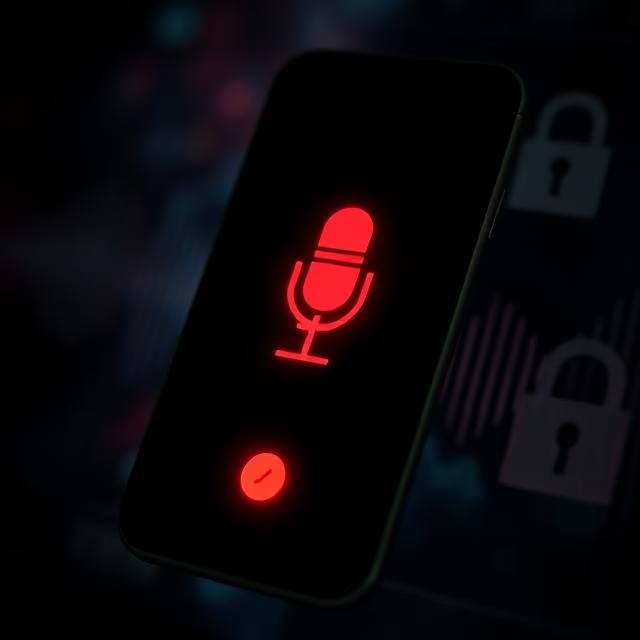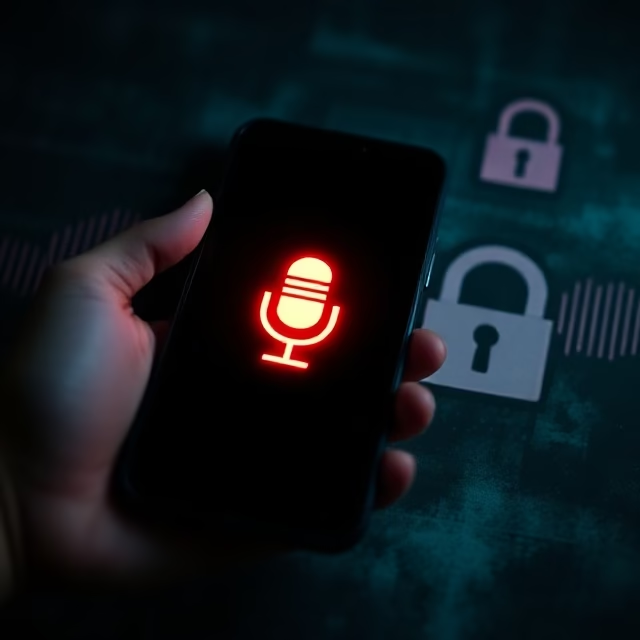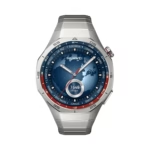In today’s digital world, privacy is more important than ever. One common concern people have is whether their phone calls are secretly being recorded—either by the other person, a hidden app, or even spyware. While call recording can be legal in certain situations (such as customer service or one-party consent states), unwanted or hidden recording can feel like a serious invasion of privacy.
So, how can you tell if your call is being recorded? Let’s break it down step by step.

🔎 Common Signs Your Call May Be Recorded
1. Beeping Sounds During Calls
If you hear a regular beep every 15–30 seconds, your call might be recorded. Many countries legally require this signal when a call is being monitored.
2. Notification or Disclaimer
Customer service and helpline numbers usually start with:
“This call may be recorded for quality or training purposes.”
If you hear this, you know your call is being recorded with permission.
3. Recording Icon on Screen
On some Android phones, you’ll see a red dot, cassette symbol, or “Recording” label when the feature is on. On iPhone, Apple doesn’t allow call recording apps directly, so it’s harder to detect unless an external device is used.
4. Echo, Static, or Voice Delay
Sometimes, recording software causes minor glitches—an echo of your own voice, clicking sounds, or a slight delay. While not a guarantee, it’s a possible sign.
5. Unusual Phone Behavior
- Phone feels warm after short calls (due to background recording).
- Battery drains faster than usual.
- Mobile data usage spikes unexpectedly after calls (recordings being uploaded).
🛠️ Technical Ways to Detect Call Recording
1. Check Microphone Permissions
Go to:
- Android → Settings → Privacy → Permission Manager → Microphone.
- iPhone → Settings → Privacy → Microphone.
Look for unknown apps with microphone access. If you see something suspicious like “Voice Logger” or “Call Recorder,” disable it immediately.
2. Monitor Battery & Data Usage
- Recording apps often run in the background and consume more power.
- Check battery usage reports in your phone settings.
- Look at data usage—if an app you don’t recognize is uploading large files after calls, it could be sending recordings.
3. Use Security Tools
- Access Dots (Android/iOS): Shows an indicator whenever your mic is being used.
- NetGuard (Android): Monitors which apps are connecting to the internet during calls.
- Wireshark (Advanced – PC): For VOIP calls, you can analyze network traffic for suspicious data transfers.
4. Inspect Installed Apps
Go through your phone’s app list. Some common names for recording apps include:
- Auto Call Recorder
- Cube ACR
- Spy Recorder
- Call Logger
If you see anything you didn’t install yourself, uninstall it.
5. Use Encrypted Calling Apps
If you’re worried about privacy, switch to apps like:
- Signal
- Telegram
These apps use end-to-end encryption and will show notifications if someone tries to record using screen recording.
✅ Do’s and Don’ts
Do’s
✔ Regularly check which apps have microphone permission.
✔ Use encrypted apps for sensitive conversations.
✔ Keep your phone’s software updated to patch security holes.
✔ Ask directly if someone is recording—legally, in many places, they must tell you.
Don’ts
✘ Don’t ignore battery and data usage spikes.
✘ Don’t install apps from untrusted sources.
✘ Don’t share sensitive information on unverified calls.
❓ Frequently Asked Questions (FAQ)
Q1: Can someone record my call without me knowing?
Yes. In one-party consent regions, the other person can record your call legally without informing you. In two-party consent areas, it’s illegal unless both sides agree.
Q2: Do I always hear a beep if a call is recorded?
Not always. The beep rule applies mostly to official call centers, not personal recordings. A hidden app or external device won’t make any sound.
Q3: Can WhatsApp or Signal calls be secretly recorded?
Not through the app itself—these are encrypted. But someone could still use a screen recorder or another phone to capture audio.
Q4: What if I find a suspicious app on my phone?
Delete it immediately and change your passwords. If possible, factory reset your phone to remove hidden spyware.
Q5: How do I stop my calls from being recorded?
- Use encrypted apps.
- Block microphone access for unnecessary apps.
- Consider using call-blocking and anti-spy apps.
🔒 Final Thoughts
While there’s no foolproof way to detect every secret call recording, being aware of signs, checking permissions, monitoring phone activity, and using secure apps can protect your privacy. Remember, your conversations are your personal space—so stay alert and safeguard them.
📚 Authentic References
- Federal Communications Commission (FCC) – Recording Telephone Conversations
👉 https://www.fcc.gov/consumers/guides/recording-telephone-conversations
(Explains U.S. federal rules on recording calls and consent laws.) - Electronic Frontier Foundation (EFF) – Privacy & Surveillance
👉 https://www.eff.org/issues/privacy
(Covers digital privacy, surveillance risks, and security tips.) - Federal Trade Commission (FTC) – Protecting Your Privacy
👉 https://www.consumer.ftc.gov/topics/privacy-identity-online-security
(Guidelines on online privacy and personal data security.) - Norton (Cybersecurity Blog) – Signs Your Phone May Be Hacked
👉 https://us.norton.com/blog/mobile/signs-your-phone-is-hacked
(Explains suspicious behaviors on phones that could include hidden recording apps.) - Kaspersky – Mobile Security Tips
👉 https://www.kaspersky.com/resource-center/preemptive-safety/mobile-security-tips
(Provides best practices to secure smartphones from spyware and unauthorized apps.) - Privacy Rights Clearinghouse – Wiretapping and Eavesdropping Laws
👉 https://privacyrights.org/resources/wiretapping-and-eavesdropping
(Details U.S. state-by-state consent laws for recording conversations.)


